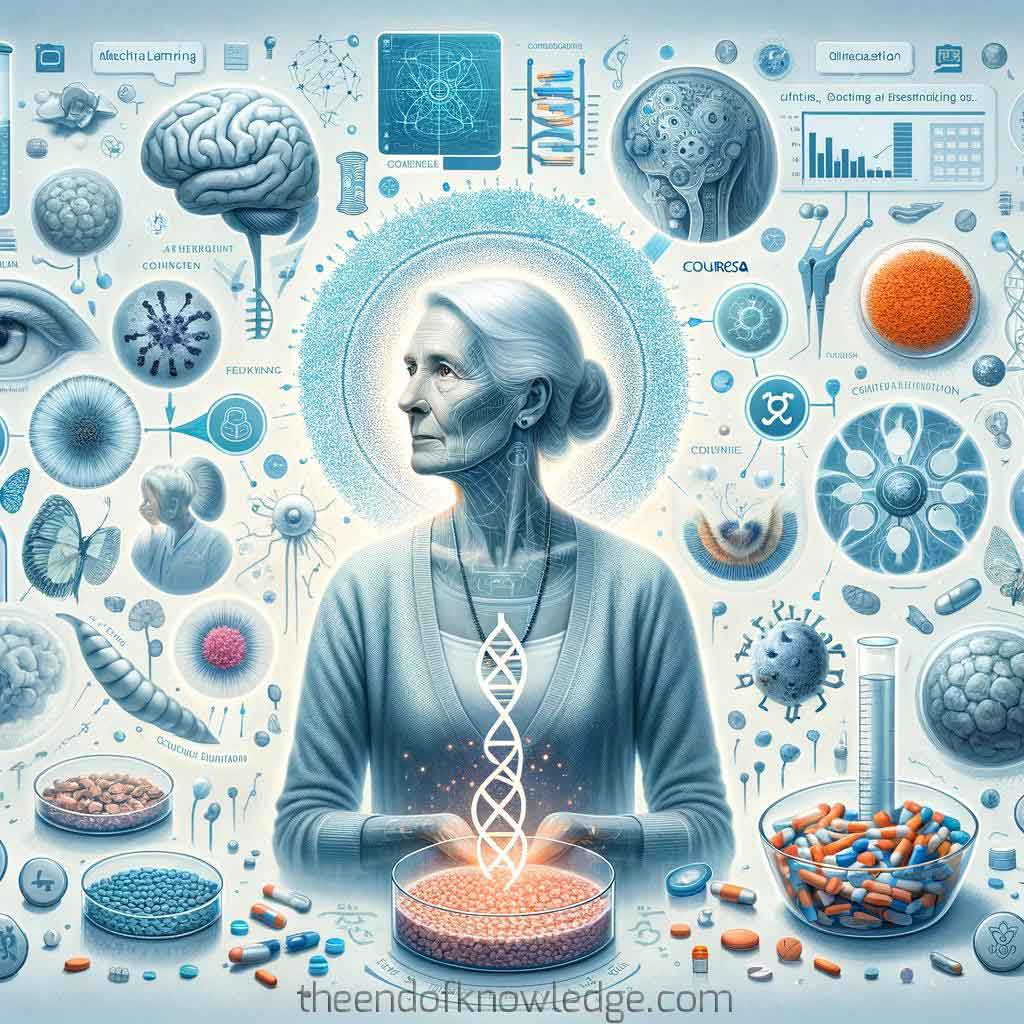 >
>
Concept Graph (using Gemini Ultra + Claude3):
Custom ChatGPT resume of the OpenAI Whisper transcription:
1.- Transition from Coursera to Biomedicine: Daphne Koller shifted her focus from co-founding Coursera, an online education platform, to the field of biomedicine.
2.- Aging and Mortality's Role in Health: Daphne discusses the paradox of aging and mortality, highlighting the natural cycle of life as both a tragic and beautiful mechanism for renewal and growth. She expresses a desire not for immortality but for an extended health span, where individuals can maintain their health and vitality for longer periods, ideally living to a ripe old age in perfect health.
3.- Machine Learning in Medicine: Koller explains that machine learning has not historically played a significant role in understanding and combating diseases due to the lack of comprehensive datasets. However, recent advancements in data collection and technology have begun to change this, allowing for the creation of large-scale datasets that can effectively leverage machine learning techniques.
4.- In-sitro's Approach: At In-sitro, Daphne Koller's focus is on generating high-quality datasets for machine learning to address fundamental problems in human health. The goal is to use biological and chemical mechanisms to create datasets that will enable machine learning to have the most significant impact on medical advancements.
5.- Interest in Human Health: Koller's interest in human health dates back to the early 2000s, motivated by the desire to work on societally beneficial projects and the technical challenge they presented. Her personal experiences, including her father's illness, further fueled her commitment to improving drug discovery and medical research.
6.- Disease in a Dish Models: Koller describes "disease in a dish" models as a novel approach to studying complex diseases. These models are derived from induced pluripotent stem cells and offer a more accurate representation of human disease mechanisms compared to traditional animal models, potentially leading to more effective treatments.
7.- The Promise of Induced Pluripotent Stem Cells (IPS): The ability to revert adult cells to a stem cell state and then differentiate them into various cell types revolutionizes disease modeling and drug discovery. This technology allows for the creation of cell types with specific genetic backgrounds, enabling targeted studies on disease mechanisms and treatments.
8.- Challenges of Scale and Generalization: While the reversion of cells to stem cells has been industrialized, creating disease models at a massive scale remains a challenge. However, the diversity and manipulation of these stem cells, such as introducing mutations via CRISPR, offer valuable insights into disease mechanisms and therapeutic potentials.
9.- Genetic Variability and Disease Burden: Koller discusses the importance of genetic variability in disease research, emphasizing the role of polygenic risk scores in understanding individual disease risks. This approach highlights how genetics contribute to disease susceptibility and the potential for targeted interventions.
10.- The Evolution of Data in Biology: Advances in technology have transformed the ability to quantitatively measure biological processes, such as single-cell RNA sequencing and super-resolution microscopy. These techniques provide a detailed view of cellular activity and structures, turning "squishy" biological samples into precise digital data for machine learning analysis.
11.- Machine Learning for Drug Discovery: Koller outlines how machine learning can identify disease subtypes and test interventions on cellular models to find treatments that may revert diseased states to healthy ones. This approach is less hypothesis-driven and opens new avenues for discovering effective drugs.
12.- The Aspirational Nature of Machine Learning in Health: The discussion highlights the excitement surrounding the application of machine learning to real-world problems in health and medicine. This field attracts professionals seeking to work on meaningful, aspirational projects that have the potential to significantly impact human well-being.
13.- The Potential of Machine Learning Across Diseases: While cautious about making specific promises, Koller acknowledges the potential of machine learning to address diseases with strong genetic components, emphasizing the importance of robust, reproducible cellular models for in-vitro studies.
14.- The Origin and Impact of MOOCs: Reflecting on the origins of MOOCs and Coursera, Koller discusses the transformative potential of online education for global learning. The initiative was driven by the desire to make high-quality education accessible to a broader audience, leveraging the internet's scale and efficiency.
15.- Learning and Education Insights: Through Coursera, Koller learned about effective education strategies, such as the importance of short, engaging content and the benefits of a flipped classroom model. These insights have influenced both online and on-campus education, emphasizing the value of interactive, learner-centered approaches.
Interview byLex Fridman| Custom GPT and Knowledge Vault built byDavid Vivancos 2024